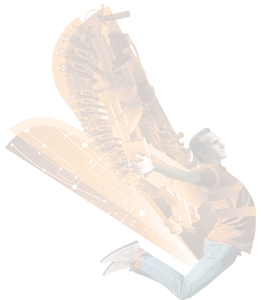Scientific Information

Jane Burridge
"Upper Limb Assessment in Neurorehabilitation"
Emerita Professor of Restorative Neuroscience at the University of Southampton
Emerita Professor of Restorative Neuroscience at the University of Southampton, United Kingdom
Jane Burridge is Emerita Professor of Restorative Neuroscience at the University of Southampton. Her research is about using technologies to improve recovery of movement following acquired brain damage. Jane is interested in understanding the mechanisms associated with loss and recovery of motor function. Recently she has led work into the development of guidelines on the use of Functional Electrical Stimulation and on functional assessment, especially how restoration of function can be distinguished from compensation. Her work crosses traditional rehabilitation boundaries; collaborating with engineers, neuroscientists and psychologists.
Lecture Title: Upper Limb Assessment in Neurorehabilitation
Brief Description of Lecture:
This lecture presents the argument for using a core set of reliable, valid and accessible outcome measures in neurorehabilitation. Such measures are needed to define underlying mechanisms of impairment and functional limitation, direct therapy and assess outcomes of upper limb neurorehabilitation. Currently, outcome measures used clinically do not measure quality of movement and are therefore unable to distinguish recovery from compensation. I will focus on two tranches of research. The first, a European COST Action, in which we developed the European evidence-based recommendations for Clinical Assessment of the Upper limb In Neurorehabilitation (CAULIN) and the second, the output from the Stroke Rehabilitation Research Roundtable (SRRR1 and SRRR2) which reached a consensus on kinetic and kinematic measures that should be used in research trials.
Due to the complexity and subjectivity of neurorehabilitation, we do not have the luxury of simple interventions or simple assessment measures, yet to generate evidence for effectiveness of interventions and to apply interventions appropriately we must have objective measures. Most importantly we need to apply those measures to large cohorts of patients using the same, or similar methodologies. Only by doing so can we generate the evidence, advance the field of understanding and ensure that resources are used wisely for the benefit of patients.
My lecture will begin by defining the problem, particularly the need to distinguish recovery from compensation. I will explain the objectives of the research, the methodologies we used and our key findings. Finally, I will give a personal view on how measures can be adopted to improve clinical practice and effectively utilise research outputs through pooling of data and metanalysis with reference to the importance of the FAIR principles.

